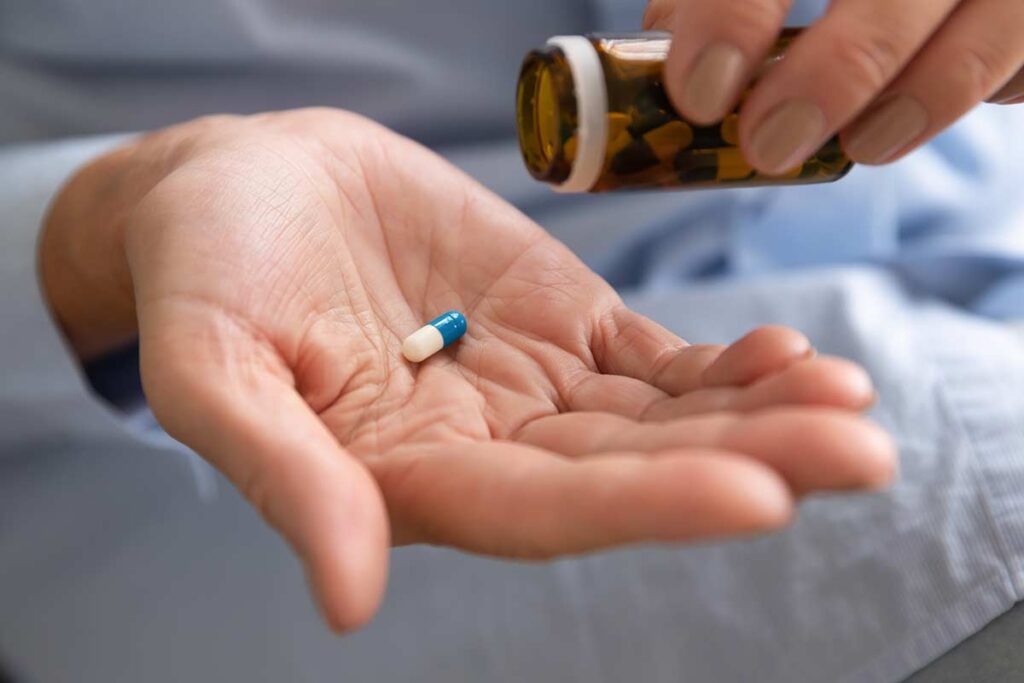When it comes to addiction, there are many substances and behaviors that a person can become dependent on, ranging from drugs and alcohol to gambling or even food. The need for effective addiction treatment is real and urgent.
In some cases, individuals may not intentionally abuse drugs to get high but still develop a dependence, such as relying on prescription medication to manage chronic pain. This dependence can gradually evolve into addiction. One important aspect of opioid addiction treatment is understanding how Suboxone is used to treat opioid addiction.
Suboxone can be used in addiction treatment programs to help individuals who are struggling with substance abuse find relief from withdrawal symptoms as they work through the underlying causes of addiction.
What Is Opioid Addiction?
After using opioids to control pain, such as after surgery or for an extended period, it is possible to become dependent on them. Eventually, a person can become addicted to the feeling of relief that opioids bring.
Others who are seeking to get high turn to opioids and can eventually become addicted as well. Opioids contribute to over half of all deaths caused by drug overdoses in the United States, so the problem is severe and has become an epidemic.
Common opioids include:
- Morphine
- Codeine
- Oxycodone
- Hydrocodone
- Oxycontin
- Vicodin
- Percocet
How Is It Treated?
Treating opioid addiction involves several factors. Counseling is often used to help the client cope with the emotions surrounding their pain and learn new strategies, but this alone is not enough. Most of the time, mediated opioid addiction treatment is necessary.
Using an opioid replacement therapy strategy, professionals help clients overcome their dependence on the drugs by reducing the withdrawal symptoms that often make it impossible to quit in the first place.
The steps a client typically undergoes, which can occur independently of each other or as a combined process, involve:
- Outpatient Detox
- Therapy
- Medicated treatment
- Utilizing ongoing coping strategies
Rehabilitation for more than 90 days is encouraged to be the most effective. This helps reduce the risk of relapse.
Medicated-Assisted Treatment
During the medicated treatment period, clients are given medicine to reduce the severity of withdrawal symptoms. These medications help without the added adverse effects brought on by opioids. Some drugs also help with cravings experienced during detox.
This type of treatment cannot occur without consulting a professional, so it is imperative to seek help. Medications such as Suboxone can reduce the duration and severity of withdrawal symptoms.

How Does Suboxone Help with Opioid Addiction Treatment?
Suboxone lowers the effects of opioid withdrawal symptoms and cravings. It has a lower potential for abuse than methadone, which is another commonly used medication in opioid treatment programs.
Some of the most common opioid withdrawal symptoms that Suboxone can help relieve include:
- Stomach cramping
- Nausea, vomiting, and diarrhea
- Frequent chills
- Muscle tension
- Sleep-related issues
- Disruptive aches and pains
- Heart palpitations
- Intense cravings
Suboxone can be incredibly effective in helping those with opioid addictions maintain recovery long-term.
Opioid Addiction Treatment at Colorado Medication Assisted Recovery
Getting treatment for opioid addiction is possible at Colorado Medication Assisted Recovery. Here, clients can benefit from therapists who tailor their approach using both evidence-based techniques and medical interventions to support long-term healing.
Understanding the different ways to treat opioid addiction, including how Suboxone is used to treat opioid addiction, helps us deliver a more comprehensive and effective path to recovery.
Suboxone can ease withdrawal symptoms, reduce cravings, and support clients as they work through the emotional and psychological aspects of addiction, creating a more stable foundation for lasting sobriety.


















